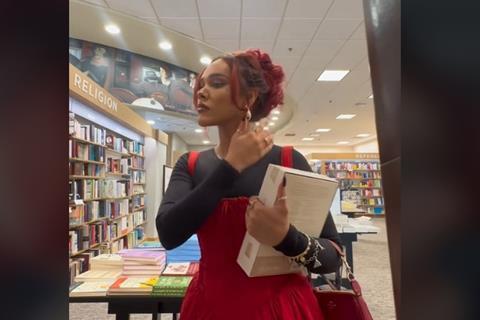As sales of Bibles in the US surge, Dr John Farquhar Plake says there’s a new hunger for spirituality among young people

Last week The Wall Street Journal published an article entitled “Sales of Bibles are booming, fuelled by first-time buyers and new versions”. The article highlighted a 22 per cent increase in Bible sales in the US in 2024 compared to the previous year, based on data from NPD BookScan. It also followed a Gen Z social media influencer who shared her first-ever Bible purchase on TikTok.
@thecelyvazquez Buying my first Bible at 28 years old ahhhh im so excited to finally read & study it🥹💖 i was thinking about starting with the Gospel? What do yall think? 💖
♬ No Longer Bound (I'm Free) - Maverick City Music & Forrest Frank & Chandler Moore
Since the article was released, many reporters and analysts have been trying to explain this spike in Bible sales. The Wall Street Journal suggested that concerns about the economy, conflicts overseas, and uncertainty about the upcoming election have led many people to turn to the Bible for comfort. Forbes agreed, noting that the increase in sales is largely driven by first-time buyers, younger consumers, and those curious about spirituality, even if they don’t have strong religious ties. The article also pointed out that Bible sales have been rising since the start of the Covid-19 pandemic.
So, why are Bibles flying off the shelves?
A curious generation
First, it’s important to see this as part of a larger trend, rather than just a short-term spike. While Bible readership in the US is at an all-time low (only 38 per cent of adults read the Bible regularly) research also shows that Gen Z adults (ages 18-27) are the most likely group to report an increase in Bible reading. In fact, 21 per cent of Gen Z adults said their Bible reading increased in 2024, and only 9 per cent said it decreased. By contrast, more Millennials (12 per cent) reported that their Bible reading had decreased than increased (11 per cent).
Beyond simply reading the Bible, Gen Z is more curious about the Bible and open to exploring it than older generations. More than one in four (27 per cent) in this age group are classified as part of the “Movable Middle,” meaning they are open to the Bible’s message and want to engage with it more deeply.
Over the past few years, the State of the Bible study has shown that many young adults are interested in conversations about faith and exploring the Bible and the teachings of Jesus. While older generations may have already made up their minds about their faith, many younger adults are still open to discovering it. This is especially true as postmodernism and New Atheism - once popular ideas - lose influence.
Today’s youngest generation is looking at the Bible - and faith in general - with fresh eyes. They aren’t necessarily against the Bible, but they aren’t predisposed to trust it either. Instead, they are seeking spiritual guidance and wisdom to help them navigate both their personal lives and larger world events. For those who know and love the Bible, this is a crucial moment of opportunity.
During the early days of the pandemic, many people turned to the Bible as they faced uncertain and difficult circumstances. Similar spikes in Bible interest were seen after the 9/11 terrorist attacks. However, people’s interest in the Bible often fades once things return to a sense of normalcy.
Today’s youngest generation is looking at the Bible - and faith in general - with fresh eyes.
The Church cannot create these moments of openness, nor should it try to. But we can be ready to serve others with the message of the gospel when they are open to it. Gen Z’s questions about the Bible are shaped by their experiences with modern media, school violence, smartphones, and an uncertain future. Bible ministries are already working to make the Bible more accessible, using clear language and designing beautiful, relevant products that resonate with today’s audience.
However, it’s important to remember that interest in the Bible isn’t limited to Gen Z. People of all ages go through life transitions - graduating, starting new jobs, moving to a new place, experiencing relationships, or facing grief - that open them up to the Bible’s timeless wisdom. These moments of disruption are key opportunities for the Church to connect people to God’s Word in a meaningful way.
Signs of Hope
Finally, we must remember the hope that the gospel offers. In a time of great upheaval, the Apostle Paul wrote to the Christians in Rome, “I have complete confidence in the gospel; it is God’s power to save all who believe” (Romans 1:16). Paul wasn’t just talking about eternal salvation; he was talking about the power of the gospel to change lives now and in the future.
Though mainstream media may not always recognise it, the data shows that people who engage with the Bible are different from those who don’t. Bible-engaged Americans are less lonely, less stressed, and more resilient and hopeful. In short, they are flourishing.
For individuals, communities, and even a nation, the Bible offers a message of hope. It reminds us that God’s plan is to bless those who put their trust in him. If more Americans are buying and reading Bibles, that gives me hope for the future of our country.



































1 Reader's comment